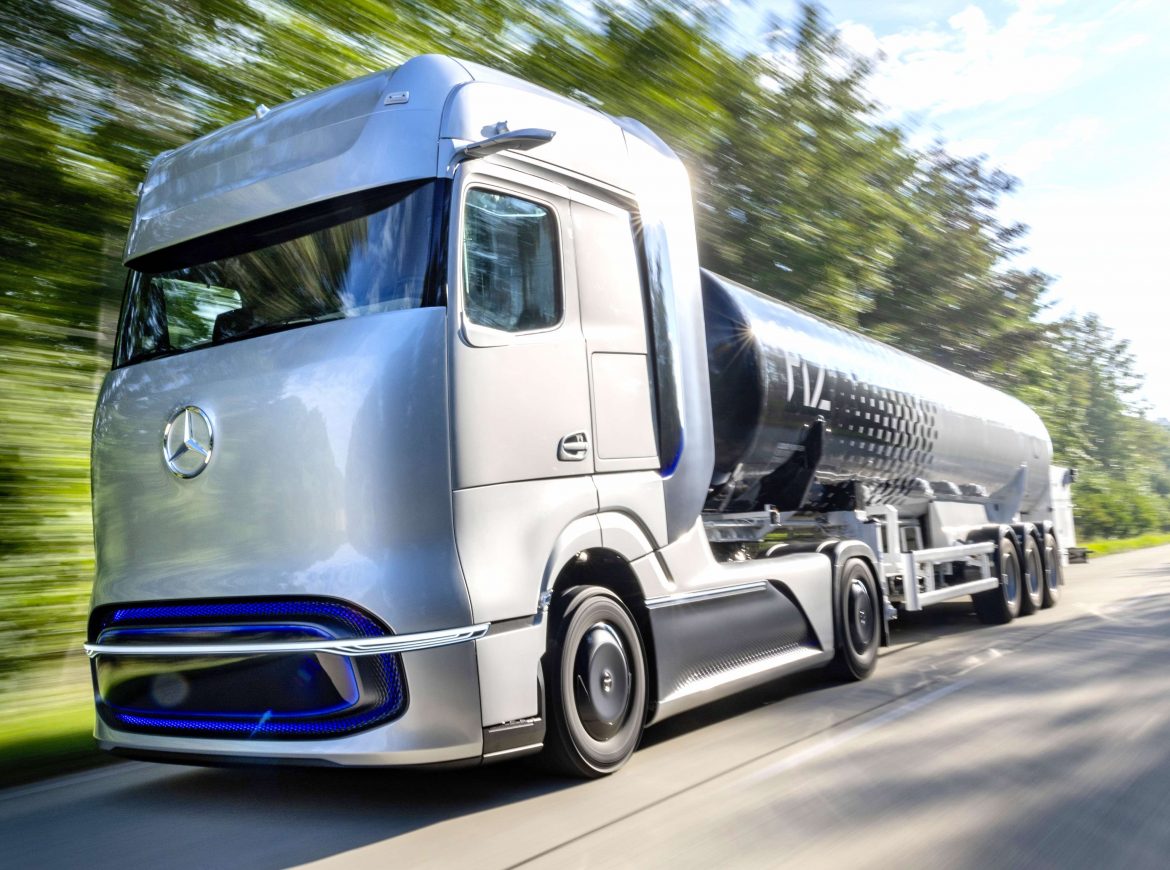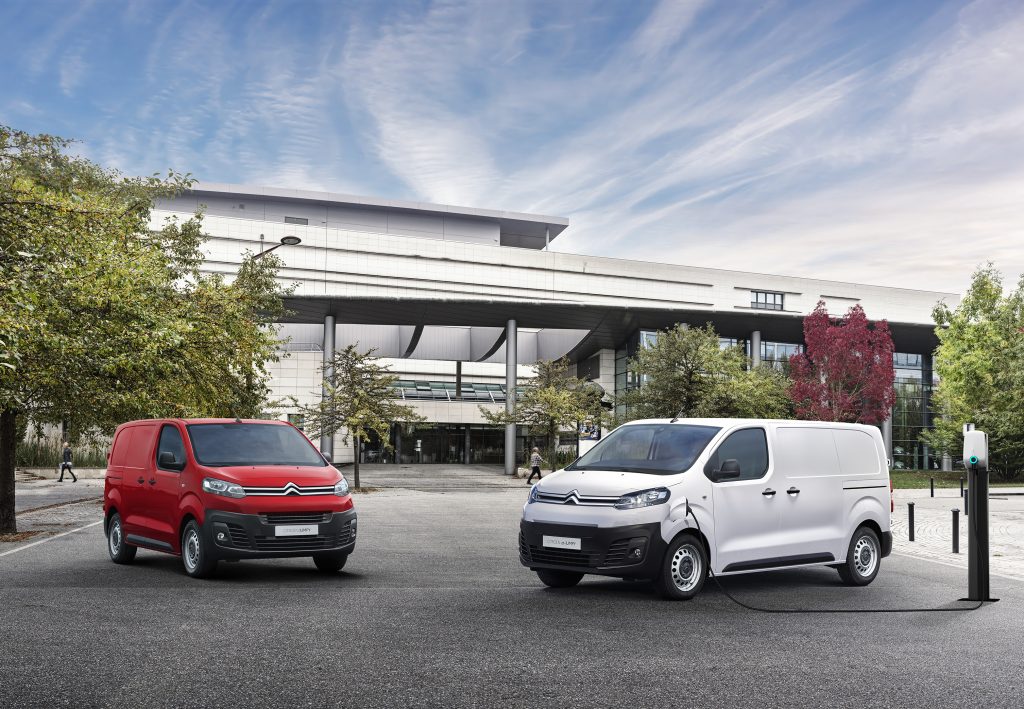The development of hydrogen and fuel-cell technology that will power the heavy commercial vehicles of the future is already well advanced and is set to progress even more quickly according to information revealed at a Mercedes-Benz presentation held in Berlin.
In the presence of Germany’s Minister for Transport, the company revealed plans to produce a complete portfolio of CO2-neutral trucks. Highlighted at the event was the unveiling of a hydrogen-powered Actros GenH2 model – and the engine developed to power it – that Mercedes said is targeted to enter series production by 2024.
In the intervening years, product development and testing will continue with customer testing scheduled for 2023 – a programme that one speaker said “must span two Winters at least” in order to identify and correct any difficulties that may present.
Designed to transport heavier loads over a longer range, the GenH2 model would have a range of 1,000kms on one tank load of liquid hydrogen and would form part of what was said to be a ‘significantly expanded e-portfolio of CO2-neutral vehicles. Thanks to the use of liquid instead of gaseous hydrogen with its higher energy density, the vehicle’s performance is planned to equal that of a comparable conventional diesel truck.
Daimler Trucks prefer to use liquid hydrogen (LH2), because in this state, the energy carrier has a far higher energy density in relation to volume than gaseous hydrogen. As a result, the tanks of a fuel-cell truck using liquid hydrogen are much smaller and, due to the lower pressure, significantly lighter. This gives the trucks a larger cargo space and higher payload weight. At the same time, more hydrogen can be carried, which significantly increases the trucks’ range. This makes the series GenH2 Truck, like conventional diesel trucks, suitable for multi-day, difficult to plan long-haul transport and where the daily energy throughput is high.
Other information emerging from the event was the participation by Mercedes-Benz in joint venture research with Volvo and Rolls Royce concerning the development of fuel cell technology – a process in which it was stated the oil industry is also engaged. In this context, the proposal was made for an EU wide approach to be adopted.
Mercedes-Benz unveils hydrogen-powered Actros test truck





